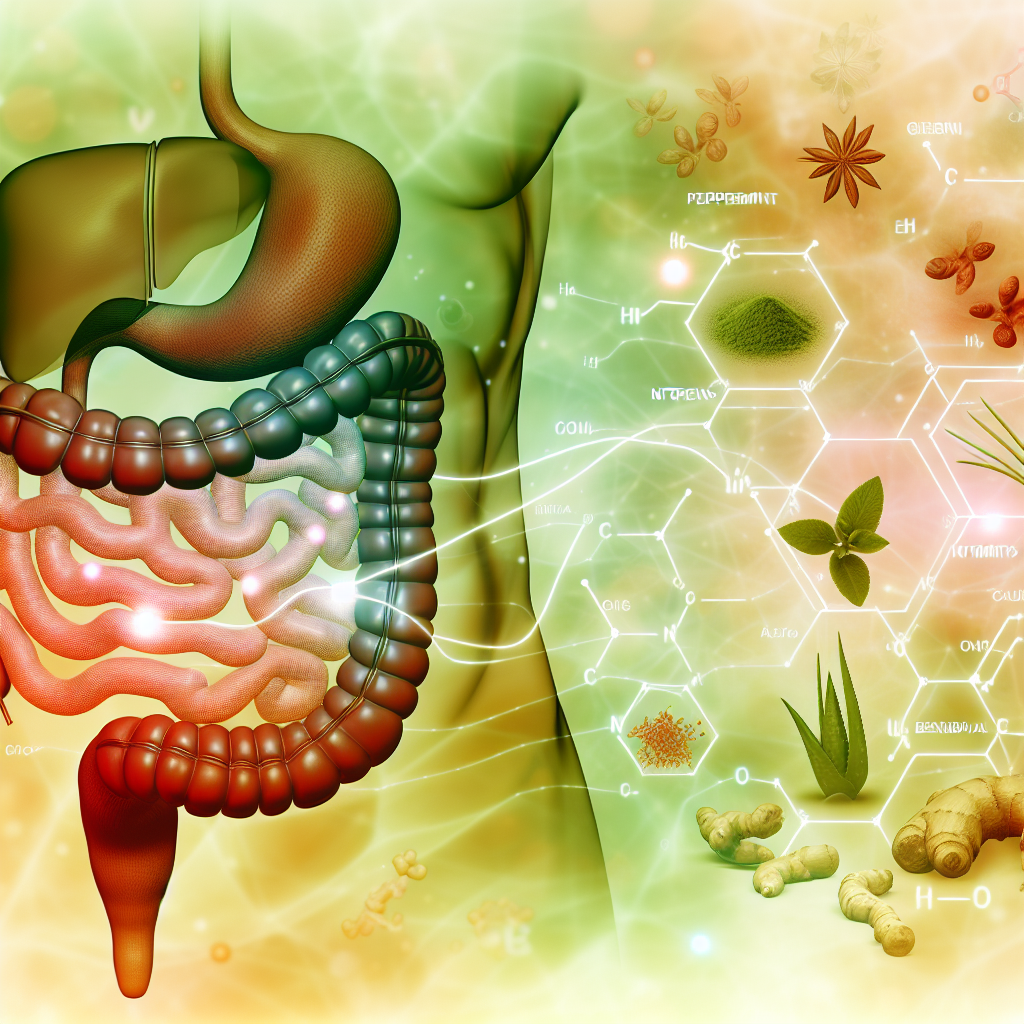Intestinal Permeability: Science-Based Approaches to Healing Leaky Gut
Introduction
Leaky gut syndrome, or intestinal permeability, is gaining increasing attention in both medical research and holistic health circles. The gut lining acts as a crucial barrier, preventing harmful substances from entering the bloodstream while allowing essential nutrients to pass through. However, when the intestinal lining becomes compromised, microscopic gaps, or “tight junctions,” loosen, leading to an increased passage of toxins, bacteria, and undigested food particles into the bloodstream. This process can trigger systemic inflammation and contribute to a variety of chronic health issues, including autoimmune disorders, gastrointestinal distress, and metabolic conditions.
Intestinal permeability is associated with conditions such as irritable bowel syndrome (IBS), inflammatory bowel disease (IBD), celiac disease, and even neurological disorders like anxiety and depression. Research continues to demonstrate the clear gut-brain connection, emphasizing how a compromised gut barrier affects not only digestive health but also mental and systemic well-being.
The root causes of leaky gut vary widely. Poor diet, excessive alcohol consumption, chronic stress, inflammation, and imbalances in gut bacteria all contribute to the weakening of tight junctions in the intestinal lining. Furthermore, frequent antibiotic use, nonsteroidal anti-inflammatory drugs (NSAIDs), and untreated food sensitivities can exacerbate permeability issues over time.
Because conventional medicine has yet to fully recognize leaky gut syndrome as a distinct medical condition, many people turn to natural, science-backed solutions to restore gut integrity and function. Addressing leaky gut requires a comprehensive approach, combining dietary strategies, lifestyle modifications, and targeted herbal and probiotic supplements.
This article explores the most recent scientific findings on intestinal permeability and provides evidence-based approaches to help heal and strengthen the gut lining naturally. From research-supported dietary adjustments to effective herbal treatments, understanding how to restore gut health is crucial for overall wellness.
The Science Behind Leaky Gut and Natural Healing
Scientific research has made significant strides in understanding the mechanisms behind intestinal permeability, as well as identifying natural interventions that support gut barrier repair.
A published study in the journal Gut found that chronic inflammation plays a central role in breaking down the integrity of the intestinal lining. Inflammation caused by dysbiosis (imbalanced gut bacteria) contributes to higher levels of endotoxins, which impair the function of tight junctions and contribute to systemic immune activation ([Camilleri, 2019](https://gut.bmj.com/content/68/8/1516)).
Another key finding comes from a study in Alimentary Pharmacology & Therapeutics, which showed that glutamine, an amino acid found abundantly in protein-rich foods, plays a critical role in maintaining the integrity of tight junctions in the gut lining. Researchers found that individuals with increased intestinal permeability who supplemented with glutamine experienced significant improvements in gut barrier function ([Kim et al., 2017](https://onlinelibrary.wiley.com/doi/full/10.1111/apt.14273)).
Key Natural Remedies Supported by Science
– Curcumin (Turmeric): A 2020 study published in Frontiers in Pharmacology found that curcumin effectively reduced intestinal permeability by modulating gut microbiota and suppressing inflammatory cytokines ([Ghosh et al., 2020](https://www.frontiersin.org/articles/10.3389/fphar.2020.00218/full)).
– Probiotics: A meta-analysis published in Nutrients reported that specific probiotic strains, such as Lactobacillus rhamnosus and Bifidobacterium bifidum, support gut barrier function by reinforcing tight junction proteins and reducing inflammation ([Hemarajata & Versalovic, 2013](https://www.mdpi.com/2072-6643/5/4/1117)).
– Zinc: The Journal of Nutrition published findings indicating that zinc supplementation reduced intestinal permeability in patients with Crohn’s disease and other inflammatory disorders ([Lee et al., 2018](https://academic.oup.com/jn/article/148/10/1585/5057663)).
– Prebiotic Foods: A report in The American Journal of Clinical Nutrition concluded that prebiotics enhance mucosal health by increasing the production of short-chain fatty acids (SCFAs), which are essential for gut barrier maintenance ([Slavin, 2013](https://academic.oup.com/ajcn/article/98/2/451S/4577430)).
Science-Based Approaches to Healing Leaky Gut
1. Nutrient-Rich Diet for Gut Repair
A gut-healing diet should focus on whole, anti-inflammatory foods while eliminating processed and inflammatory triggers such as refined sugars, processed grains, and artificial additives. Nutrient-dense foods crucial for gut repair include:
– Bone broth: Rich in collagen and gelatin, both of which promote gut lining regeneration.
– Fermented foods: Kimchi, sauerkraut, and kefir contain probiotics that support a balanced microbiome.
– Healthy fats: Omega-3s from fish and flaxseeds help reduce systemic inflammation.
– Glutamine-rich foods: Chicken, fish, eggs, spinach, and cabbage provide amino acids that help restore intestinal lining health.
2. Herbal Remedies to Support Gut Healing
Certain herbs have been researched extensively for their gut-healing properties. The following herbal remedies can provide additional support:
– Slippery Elm: Forms a soothing coating in the digestive tract and reduces irritation.
– Licorice Root (DGL): Supports mucus production and protects the stomach lining.
– Turmeric (Curcumin): Helps reduce inflammation and tighten gut junctions.
– Aloe Vera: Has tissue-repairing and antimicrobial effects that support intestinal healing.
3. The Importance of Probiotics and Prebiotics
Balancing the gut microbiome is essential for maintaining intestinal integrity.
– Probiotics: These beneficial bacteria, found in fermented foods like yogurt, sauerkraut, and kimchi, help strengthen the gut lining and reduce inflammation.
– Prebiotics: Foods such as garlic, onions, bananas, and asparagus nourish beneficial bacterial communities, enhancing gut barrier health.
4. Managing Stress for a Healthier Gut
Chronic stress contributes to leaky gut by increasing cortisol levels, which weaken gut barrier functions. Implementing the following stress-management techniques can improve gut health:
– Meditation and Mindfulness: Reduces stress-related inflammation.
– Gentle Physical Activity: Activities like yoga and walking support gut microbiome balance.
– Quality Sleep: Essential for gut restoration and healing.
5. Supplements to Strengthen the Gut Lining
Several nutrients and supplements have been shown to help repair intestinal permeability:
– L-Glutamine: A vital amino acid that supports the rebuilding of tight junctions.
– Zinc Carnosine: Proven to reduce inflammation in the gut lining and improve barrier integrity.
– Collagen Peptides: Help restore intestinal tissue and strengthen gut function.
Final Thoughts: Restoring Gut Health for Whole-Body Wellness
Healing leaky gut requires a holistic, science-backed approach that includes dietary modifications, herbal and probiotic interventions, and lifestyle changes to manage inflammation and stress. Research supports targeted therapies, including glutamine, probiotics, and anti-inflammatory herbs like curcumin, as effective strategies for restoring the integrity of the gut lining.
Natural interventions that focus on repairing intestinal permeability not only improve digestive health but also reduce systemic inflammation and enhance overall well-being. As gut health continues to be a cornerstone of overall physiological and mental health, implementing these evidence-based strategies can provide lasting benefits for individuals struggling with leaky gut syndrome.
Summary:
Leaky gut syndrome, or intestinal permeability, is a growing concern that can lead to various chronic health issues. This article explores the science behind leaky gut and provides evidence-based approaches to restore gut health, including a nutrient-rich diet, herbal remedies, probiotics and prebiotics, stress management, and targeted supplements. By addressing the root causes and implementing a comprehensive strategy, individuals can repair the gut lining and achieve whole-body wellness.

Dominic E. is a passionate filmmaker navigating the exciting intersection of art and science. By day, he delves into the complexities of the human body as a full-time medical writer, meticulously translating intricate medical concepts into accessible and engaging narratives. By night, he explores the boundless realm of cinematic storytelling, crafting narratives that evoke emotion and challenge perspectives.
Film Student and Full-time Medical Writer for ContentVendor.com




